
To analyze the ongoing problems in the Congolese Kivu’s is not an easy task: the situation is getting more and more foggy by the day, the different protagonists are accusing each other on the social media with sometimes ridiculous arguments, the situation has become so complex that most of the outsiders hit the ball in the wrong direction when asked for their opinion, etc. The situation on the spot can change quickly; adversaries can change sides at any moment. But other facts remain unchanged: the hatred mill keeps on turning at full speed, people keep fleeing their villages and others are getting killed every day.
We follow up on these issues on a daily basis, we talk to diplomats and people inside the warring factions, governments and international institutions. We gather information where we can find it without pretending that we can be completely neutral. Nobody can claim this when it comes to this conflict: it is highly un-accessible for outsiders and venturing in these badlands can be extremely dangerous. But we’ll try to sum up a number of things that changed visibly in the recent past.
The credibility of the Kinshasa government is fading:
Foreign observers and governments who were until recently following the narrative of the Tshisekedi government that Rwanda was the driving force behind the M23 and that the latter was responsible for most of the misery and violence in this region are now changing their views. They openly state that the collaboration between the FARDC and the FDLR-Nyatura-Mayi Mayi coalition is simply unacceptable. Most of the East-African forces on the spot and its officers are claiming now that Kinshasa should negotiate directly with the M23 and their political leaders in their home countries openly state that they didn’t send these troops to fight the M23 but as a tampon force between the M23 and the FARDC. Our sources in these circles also tell us that these forces feel far more comfortable to collaborate and to talk to the M23 as with the FARDC. Several months ago Tshisekedi moved heaven and earth to convince the Kenyan, the Angolan and the Burundian government to send troops to the Kivu’s to fight the rebels. Now they have become an obstruction for him. The M23 showed goodwill by vacating several locations such as Kibati, Rumangabo, Mushaki and Kilolirwe-Mweso. In some cases, the interposing EAC forces moved in too late to avoid the FDLR-Nyatura forces to fill in the vacuum and this resulted in renewed fighting. EAC sources also confirmed that most of the cease fire violations should be credited to the FARDC. They are observing that the city of Goma is becoming more and more a kind of a militia garbage bag in which FDLR, Nyatura, Mayi Mayi and FARDC are beginning to set the rules, rob and terrorize people at random, etc.
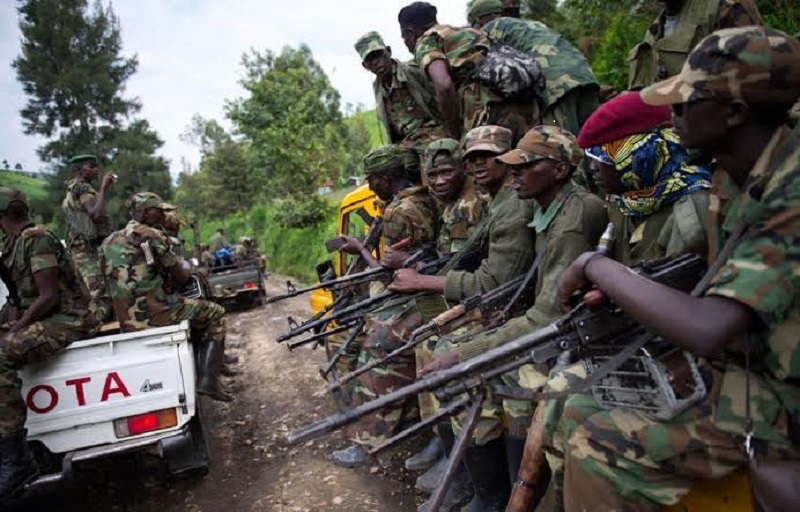
The international community is beginning to put big question marks behind most of the decisions of the Kinshasa government, their unwillingness to negotiate with the M23 and the fact that Tshisekedi might use all these problems in the east to be able to postpone the elections. The latest shift in the government with J-P Bemba being appointed as the new minister of defense and Vital Kamhere as the new finance minister is seen by many as yet another stupid move of the desperate president. Bemba is seen by many as a kind of a frog that is able to croak very hard but that can be dealt with as long as the deals are profitable for him. Kamhere already fell in disarray with Tshisekedi and was accused to have stolen cash while the president himself was involved in this scam. Bemba also has a warlord past. In this political soap opera alliances can change very fast. Bemba and Kamhere have now, once again, access to the honey pot of government funds and can beef up their bank accounts so that they’ll have enough cash to participate in the upcoming elections, with or without Tshisekedi. Most of the observers who know the Congolese internal cuisine very well lost their trust in the good intentions of the local political elite.
Kigali is polishing up its reputation
As we already told You institutions such as the European Union and several big important international governments tried to take an easy way out to solve the conflict in North-Kivu by accusing Rwanda to be behind the resurgence of the M23 and by doing this they were hoping to stop the fighting. Under intense international pressure Rwanda was forced to pull Laurent Nkunda out of the Congolese boxing ring and in 2013 General Sultani Makenga was also forced to abandon ship. In these two cases the international community had failed to consider the root causes of the conflict. This time the Rwandophone Tutsi community in the Kivu’s decided to stay put and they have the full moral support of the Tutsi communities in Rwanda; pulling the M23 out again is not an option for this community and this time Kigali did not comply. Their approach always remained very pragmatic and this attitude is starting to produce its first results now. And the release of Paul Rusesebagina, the Hollywood hero who later announced openly that the Kagame regime could only be toppled by another war, should be connected to all this.
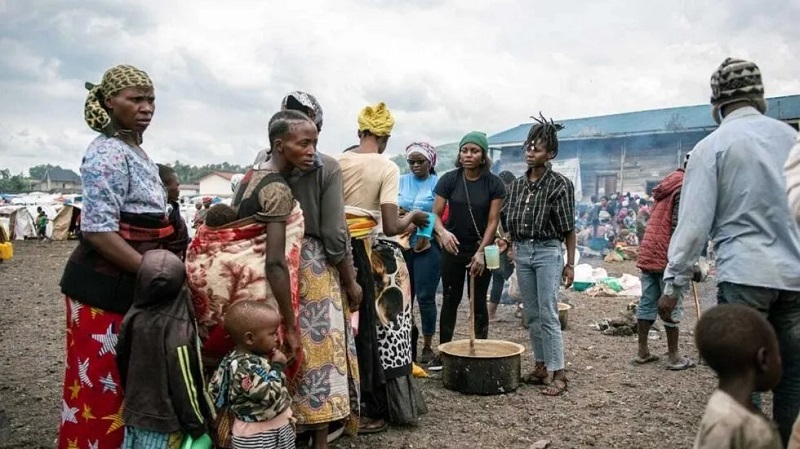
Going back into detail who Rusesebagina is and was would make this paper too long. But people who knew him well in the past and who still know him now that his fame only came after the release of the film ‘Hotel Rwanda”. As most Hollywood productions this film was far off the facts of what really happened in the Mille Collines Hotel in Kigali during the genocide. But Rusesebagina was parachuted into the role of a hero. He started making money by talking in public and was soon targeted by other opponents to become the popular and shiny face for what had to become a new rebel- and opposition group. Those groups needed him because they all had participated in the genocide in the past. For a short while this construction seemed to work but naïve as he was Rusesebagina was lured into a trap by the Rwandan intelligence services. He was openly condemned to 25 years behind bars and his arrest was heavily contested by the anti-Kigali lobby. In fact, the former hotel manager became a new martyr for them. Hollywood history and reality is like a second bible for many Americans who are really badly informed about the events in far away countries. Although the FBI and the Belgian police had delivered all the necessary evidence to the Rwandan authorities that the guy was guilty as hell the American government could not bypass this fact. The man was not an American citizen and the Belgians had classified his case as a consular issue so that they would not have to deal with this case. Rusesebagina was, after all, also a Belgian. But for the Belgians problems in Africa are not a priority any more.
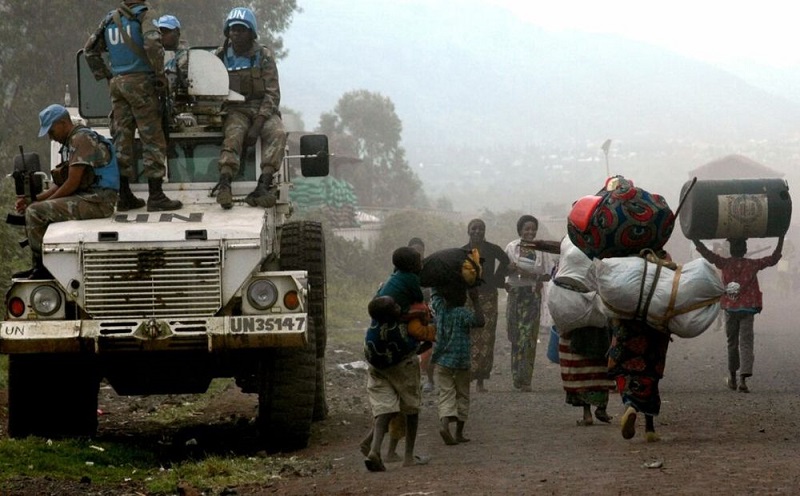
When Antony Blinken arrived in Kigali several months ago it became clear that for the US the Hotel Rwanda story was important. The idea started to ripe in Kigali and probably also in Washington to use him as a bargaining tool. The Americans were losing ground in Afrika as the Chinese and the Russians were gaining popularity with a lot of African leaders asking them for support that involved much less obligations and moralizing remarks of the Americans. Rwanda had always been a local actor the US could count on; they had engaged Muslim extremists in Cabo del Gado, they had voted against the Russian invasion of Ukraine, they were the last valid partner the US and the French could count on in the Central African Republic. The Chinese and the Russians were courting Tshisekedi to deliver weapons to fight the M23. Until recently the Congolese president was given the advantage of the doubt in Washington. But the CIA and the American embassies in Kinshasa were suddenly overwhelmed with info that the local leadership could not be trusted. Nobody knows exactly how the deal to release Rusesebagina was concluded and what the exact conditions were. As things evolve and as time passes this will become clearer. But Rwanda booked another diplomatic victory with all this: they had proven that nobody could mess with them, he was given grace on humanitarian grounds bit he signed a letter in which he attested that he would refrain from politics and abandon his armed struggle, the Hollywood indoctrinated majority of the Americans could be put at ease, Kagame showed that he can forgive his opponents. A couple of days after the release of the old man the American congress released a statement that they fully recognized that in 1994 a genocide against the Tutsi’s had taken place, the Congolese leadership was officially tapped on their fingers for pampering and using the FDLR extremists to fight the M23, etc. It might be possible that Kigali is putting a bit too much hope that the American attitude towards them and the M-23-war will change a lot. But one thing is clear: both Rwanda and the M23 obtain more breathing space via this deal. To obtain that they just had to release an old man who was already finished and that was artificially parachuted to stardom in Hollywood.
About the M23
The M-23 should be looked at as a solid and rather well structured and disciplined military structure with a lesser developed political wing. A big number of officers and middle rank rebels earned their spurs in the Rwandan army and/or in proxy structures such as RCD-Goma and the AFDL. Part of the backbone of this organization consists of youngsters that have European, Indian or Chinese university degrees and that were send there to study after 2013. New recruits flocked in from everywhere: refugee camps in Rwanda and Uganda, also some from Burundi and others were recruited locally in Congo. All these rebels have one thing in common: they were all born in Congo or from Congolese parents in the refugee camps. Very recently a lot of disorientated FARDC soldiers and officers also joined their ranks. The M23 officers created a structure they knew well from their past in the RDF. This is also why a lot of outsiders think wrongly that they are Rwandan soldiers. They are as Congolese as Tshisekedi himself. Their only weak point is the fact that their political expertise lacks the charisma of ex-M-23 representatives such as Rene Abandi. In 2012 and 2013 the organization was also easier accessible for the international press. Abandi was roaming European capitals in those days and talking to journalists and diplomats. Today very few journalists understand well what they are focusing on. Mainly because they lack access.
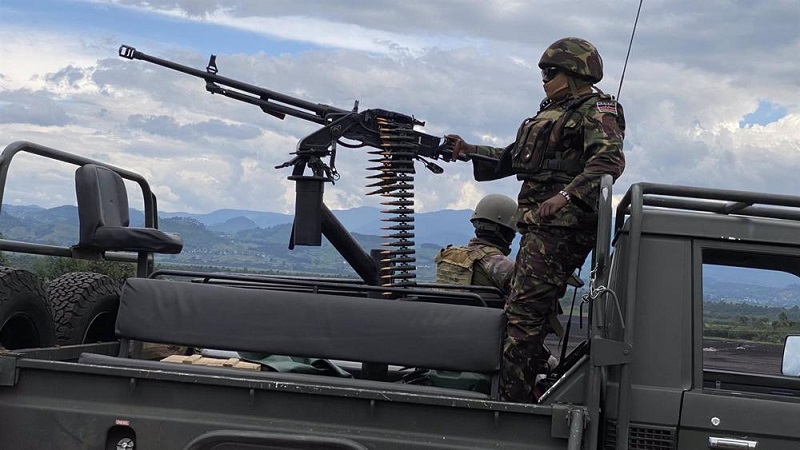
For different reasons the M-23 had to focus on their military actions, to defend themselves. Men who fight often do not have a lot of time to talk. They had to move out of the volcanos because the FDLR and the FARDC started to attack them. Pushing those guys back didn’t cause too much trouble. In the meanwhile, they were able to forward their claim that in 2013 a deal was struck between the government in Kinshasa and their own leaders to re-integrate them into their villages. Until today Kinshasa refuses this. The M-23 were soon labeled as terrorists and accused of all the other misery in Congo as well. More than 100 other armed groups are active in the Kivu’s. Some of them kill dozens of people every day. But the international community jumped on the Kinshasa narrative that the M-23 were the biggest devils. Soon after that also Rwanda was accused of supporting the rebels. Kigali had no immediate interest to do this. After the covid-19 crisis they wanted to continue with the development of their own country. But very soon the attitude of the Rwandans changed: they were largely accused of wrongdoings they didn’t commit, the Rwandan public opinion was becoming more an more sympathetic for the M-23 cause, Tutsi’s were being targeted once again with machetes by Hutu extremists and other militia’s. But most important of all the FDLR was once again re-equipped by the FARDC to do most of their fighting. The RDF set up extra positions in the volcano region to prevent the FDLR from infiltrating. The FDLR and the FARDC provoked them a couple of times with artillery shells on civilian targets and with one of their old Sukhoi jets. The RDF is weary for the possibility that Tshisekedi might provoke them directly on Rwandan soil or that the situation in Goma might get out of hand so badly that more massive killings start. The Rwandan army has the potential to stop this on one day, if necessary.
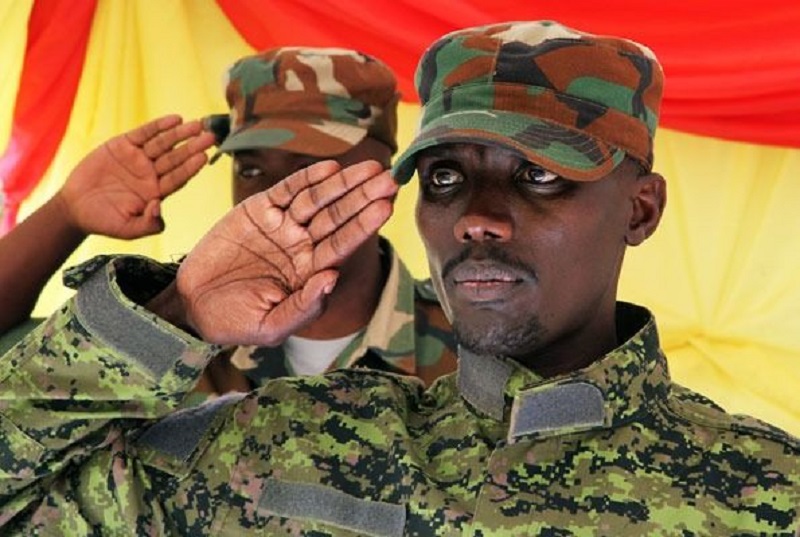
Kinshasa uses so called evidence of the UN (satellite pictures, drone observations) to prove that the Rwandan army is effectively involved. But this evidence is rather meager. They might be involved a little bit at this stage. The situation is getting worse by the day. But the other truth is that in fact they really do not need to be on the spot with a lot of troops because the M-23 has been able to deal with this treat very well so far. Most of the support the M-23 is receiving from Kigali is of moral and political caliber.
A new offensive?
The M-23 could not only push back the FARDC but they are also busy to clean up the FDLR presence and influence in the zones they liberated. FDLR money producing and crucial areas such as Bwito already have been cleaned up. The Hutu extremists were making millions of dollars with their agricultural and charcoal productions in that region. In other parts of Nord-Kivu, they also ran coltan mines and local transport tax collection points. Their whole money-making apparatus stumbled to pieces while the M-23 was chasing them away. This is also one of the reasons why the FDLR remains so well motivated to fight against the M-23. Our contacts tell us that one last and big battle will have to be fought between the FDLR and the M-23; the one for the control of Binza and the area behind Nyanzale where many FDLR soldiers are regrouping, as we speak. When the M-23 withdrew from Mweso and Mushaki they sent their men to this region but they had to call them back to restore order because the EAC troops vailed to secure the vacuum they had left behind. Do not forget that a lot of FDLR fighters had to leave behind their families in the zone that is currently in the hands of the M-23. Others are staying already in refugee camps in Rwindi, Nyanzale and up north towards Butembo. If they can not go back to the villages, they lived in for the last twenty years, they might be repatriated to Rwanda and the FDLR rebels might lose their human stock out of which they can recruit youngsters.
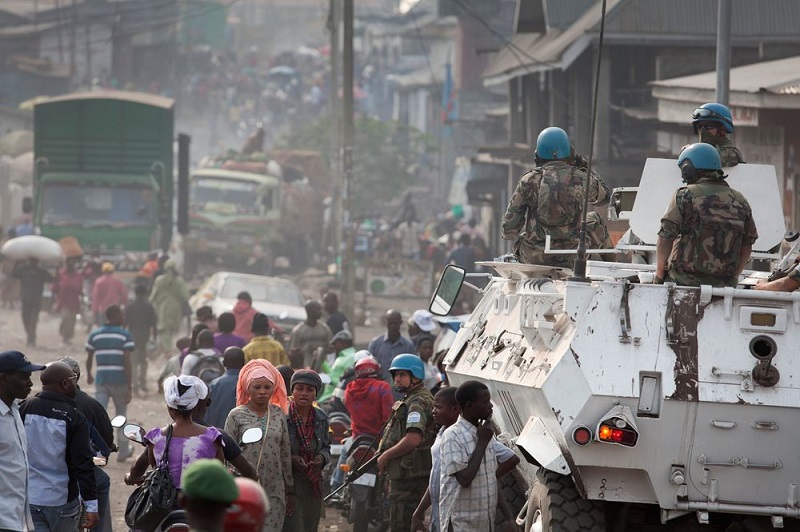
About the EAC forces, mercenaries
As already mentioned before, the presence of the East-African Forces is becoming a thorn in the eye of the Kinshasa government. At first, they believed that these forces would fight against the M-23 and now it becomes more and more clear that these foreign soldiers trust the rebels of General Makenga a lot more than the FARDC. They also pass on info to their superiors in their home countries that most of the cease fire violations can be written on the palmares of the FARDC. Their commanders are convinced that these problems can only be solved when the FARDC negotiates directly with the M-23. The friendly attitude of the Burundian and the Ugandan troops towards the M-23 is hurting the feelings of the Congolese leadership. These EAC-forces were given a mandate by Kinshasa to enter Congo with weapons. A so-called SOFA agreement was also signed. SOFA stands for “Status of Forces Agreement” and that is an extra protection for foreign forces that deploy on foreign soil. If this agreement is not renewed by the Congolese government most of the EAC forces will have to dance on thin ice in the DRC. This SOFA agreement will have to be renewed very soon and several sources inform us that Kinshasa does not want to sign it again. They tell us that Kinshasa is recruiting a new batch of mercenaries in Colombia and in Uruguay. The same organization that recruited those Rumanians and ex-legionnaires would again be involved. Last week also the rumor surfaced that Blackwater was negotiating a deal with Kinshasa. Eric Prince, de boss of this company, already runs a small transport company there. He is also suspected of having done business with Kabila junior in the past. Blackwater is nowadays more leaning on the Chinese as on the Americans. The involvement of mercenaries in this chaos is perceived very negatively in Europe and in Congo their involvement has always been a disaster in the past. We believe that the rumors about Blackwater are not justified but the story about the Colombians was confirmed by a couple of sources. Kinshasa is not happy for 100 % about their East-European legionnaires. They refuse real front-line work and the Colombians are believed to be more flexible to fight in hills. To be followed. In Congo some facts can only be confirmed is you see them happening in front of your eyes. Last week the FARDC also choppered a bunch of mercenaries to Rwindi. But they had to return to Goma because MONUSCO refused to fly over their logistics and weapons.
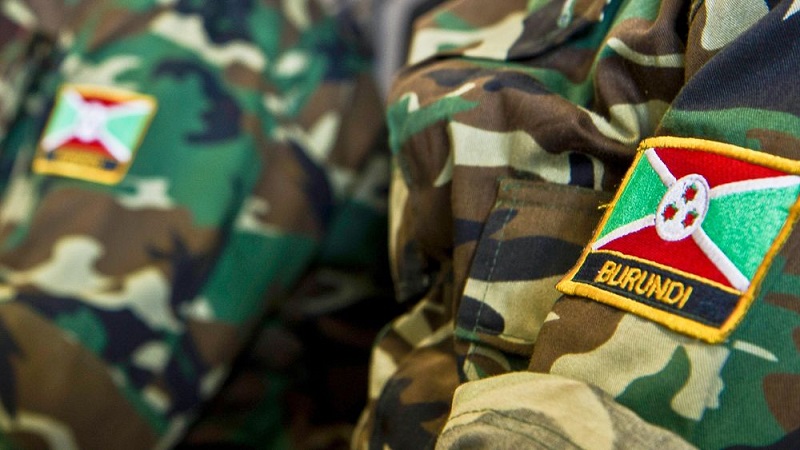
The question that remains is simple: will the EAC-forces stay in Congo when Kinshasa complicates their mandate and confront Tshisekedi with his own contradictions and lies? In that case their presence there will become problematic. Or will they abandon the job they came for? In that case they’ll lose face big time. Some of our sources tell us that this can become a breaking point in the near future that can possibly evolve in even more anarchy and chaos. The mob in Goma can be manipulated again and attack those soldiers. MONUSCO already has experience with this scenario. A possible implosion of Goma might kill many people and might also spill over to Gisenyi-Rwanda.
We were invited for dinner last week by people of a foreign think tank who wanted to hear our opinion how this conflict can be solved. We were not able to give an answer to that question. It is a positive thing that people in the US and in Europe are changing their views on what is going on there. It is very difficult not to become completely cynical when you’re already following up on this conflict for more than 30 years. If Kinshasa fails to arrange this problem the people in the Kivu’s might take things into their own hands. This might change the future of Congo completely and other regions might follow. Replacing Tshisekedi by guys such as Martin Fayulu, Dennis Mukwege, Kabila, Jean-Pierre Bemba, Vital Kamhere or Moise Katumbi will probably not solve the problem either. Some of them are even more racist and stupid as the current president, others might be smarter but just getting into this game for the cash. People who are honest and well intentioned in the DRC do not stand a chance to collect support. This is the sad truth!
The country hit the bottom of morality already big time. Let’s pour hope out of the fact that out of this chaos some positive things might erupt.
Subscribe to view notification of our daily news
RwandaPodium © All Rights Reserved. Powered by thesublime.rw